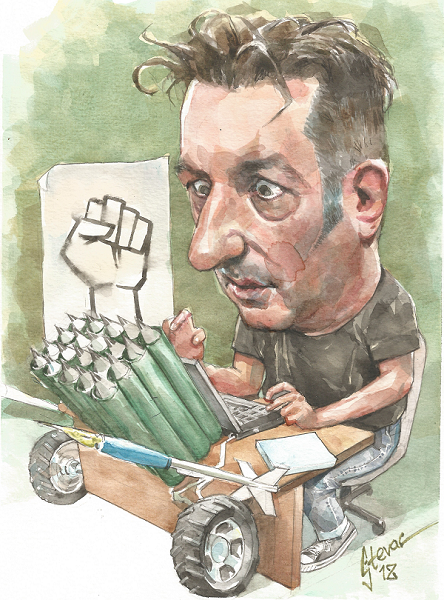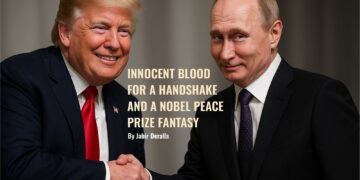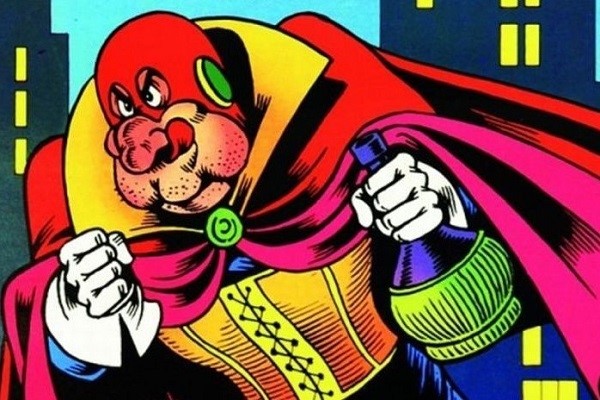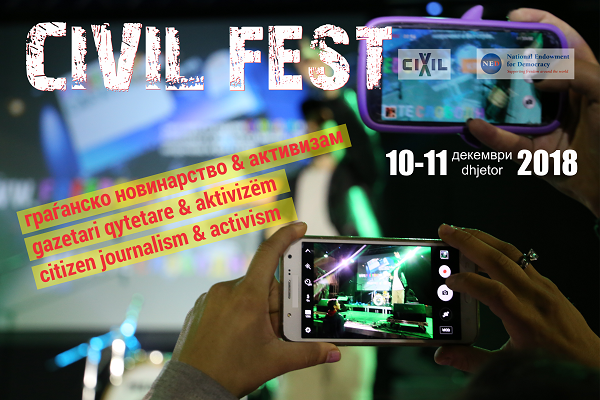The legendary comic hero Superhik, his ancient personification, actually, lives in Macedonia. He is born in a marriage of convenience, with an unclear ethnic origin, and his only faith is justice of the rich. He realizes from a young age that, although he comes from a poor environment, that he should put his nonpareil talents in the service of the rich. From there comes his universal life and professional motto: “I steal from the poor, to give to the rich”. In the Macedonia political picturesqueness, Superhik fits in superbly. Just so there’s no confusion, there is a Superhik type in other Balkan countries too, regardless if they’re seemingly trying to join the EU or have managed to somehow squeeze through the (seemingly) strict filter of the EU. The administration in the EU, however, is guided by a slogan, embedded in the secret operational documents, and that is: “He who sleeps, he is not awake”, whose author is Alan Ford, otherwise secret advisor in Brussels, part-time.

In terms of Superhik, he has several super talents, of which two are the most famous: he has a strong, deadly, very drunk breath and the ability to fly. These two super capabilities make him exceptionally mobile and deadly for the enemies of the rich. He doesn’t have to move through heavy traffic and polluted air which, actually, only helps him, and with his weapon, his breath, he can stun even the most zealous wretch who dares to oppose the rich and powerful.
Without Superhik, the rich would be lost. For decades, they have gotten used to the faithful service of this self-initiated protector. They wouldn’t have the courage, nor the possibility to run their businesses based on the two principles: “It’s not important to participate, it’s important to win” and “It’s better to live a hundred years as a millionaire, then seven days in misery”, as once the frequently excited Bob Rock had exclaimed.
I hear these days that Nikola Gruevski, after Magyar Superhik “flew” him to Budapest to his business partner and accomplice Orban, is in communication also with Sir Oliver. He shared with Grujo a strategy that arises from the experiences of the cousin of his mysterious partner Bing, so in the last encrypted message he wrote to him: “Start with a diet, maybe in that way you will manage to squeeze through the bars in prison. There is no other solution”. That is called a search for a second opinion. And the public which, on behalf of the rich, is controlled by Superhik, is led by the statement of the famous lawyer from the Sicilian school: “All of that is the fruit of the police imagination!” and drinks a good dose of whiskey at once.
As things stand, it seems that Grujo, nevertheless, will ignore the message of Sir Oliver and will rely on the services of Magyar Superhik. Just so there’s no confusion, Orbanistan also has his Superhik, who identifies himself patriotically with the prefix Magyar.
The Macedonian Superhik does not suffer from identity and patriotic themes, though in his fight he fanatically uses all dirty weapons to reinforce the effect of his stinking breath. Even though the poor people in Macedonia have less money, he is continuously working on collecting even the last crumbs of their sparse meals and is obediently flying to serve them to the rich.
The few remaining activists in these late November days sometimes, passing by the flower shop of Number One, exclaim: “It’s better to drink water, then gasoline”, and then continue filling out applications for a job precisely in that flower shop.
Mickoski, on the other hand, from the watch tower of the palace under bankruptcy, with a satellite telephone, communicates with Superhik, gives him instructions on how to maintain his hydropower plants and repeats to him: “And you will tell me! It’s better to reveal a book, then a friend! You you don’t want me to fall on my knees!”. He, on the other hand, in defense of Grujo, the client of his partner Magyar Superhik, replies to him with a quote from Number One: “A tactful withdrawal is better than a bloody defeat!”.
That is, in short, part of the story on Superhik, for whom there is much more to write about. And to sing. And what is a (poor) person to do in November?
















